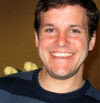Hudson and I arrived home from the Mountain Brook v. Shades Valley high school football game. We were the only people at the game who were mostly dry. The rest were soaked by a short rain shower during halftime. How did we make it safely, and the others did not? I'll explain it with the financial concepts of "imperfect information" and "asymmetrical information."
Setting
The game was turning into a blow out; Mountain Brook has a star receiver (#7) and a pretty good QB. Shades Valley has a stud running back, but the offensive line couldn't block the eight people the defense rushed each play. Hudson and I arrived with half the first quarter remaining.
By the time we arrived, the parking lot was full. There were easily 3500 people in the stadium. In financial terms, 3500 people were "long" the football game. Of the people there, I saw one umbrella. 1 of 3500 people hedged the chance of rain. Everyone else relied on wit and intuition to avert rain.
The Information
Shortly after we arrive, I notice there are no stars or moon in the sky. The light from the football game bounced off the clouds. Using my new purchased smart phone, I downloaded "The Weather Channel" application. Compared to everyone else in the stadium, I held "asymmetrical information."
I had more information than my present environment. From the information, I determined: it might rain and if it did rain, it would be a small-short rain shower. Everyone held "imperfect information." Without knowledge of the larger environment, they only knew it might rain. Once it began raining, all they knew was "it is raining." The masses couldn't make a decision to stay or go, run to the car, or find quick shelter. Even if they made the right choice, it was with incomplete information.
My Decision
When the first rain drop hit my nose, I picked up Hudson and walked out. I was the first person to walk out the gate. Drops were falling sparsely. I looked behind me to see 20 people following. The other 3478 were betting on a few drops.
When I found the first good shelter, Hudson and I stopped. It was the guard shack at Mountain Brook High School. The guard shack would max out at 20 occupants. As Hudson and I stopped, the rain picked up. One lady with her son stopped, I told them "It will only be a couple of minutes."
As with markets, when the masses are long the football game and without hedges, there is only so much shelter available. Had I bet on rain and it not rain, I would have missed the the half time. My cost would have been the minutes I waited for it to rain. That was the cost of my hedge.
We waited.
Their Decisions
The 3478 people at the football game did not make decisions until realizing, shortly, they would be uncomfortable. Rain fell faster; not considered a soaking rain, it was a dowsing rain. Everyone else knew "it is raining." Everyone else made decisions based on the uncomfortable rain and the decisions others made. Shelters were full, under the trees was beginning to soak, and most people were running to their cars.
Everyone was making the best decision with the information he had.
Similarity to 2008
Beginning in 2005, certain people looked outside the bull market, i.e. the football game. They began making their decision to leave the market. They figure out how to short the market. At the football game, these people would have brought umbrellas and sold them during the rain storm. No one was that prepared.
In late 2007, other individuals began leaving the market. They had seen the future, and had made a decision based on risk. That was me.
In September and October 2008, that was the other 3478 people in the stadium. Shelters were full with the early movers. These individuals had two options: go to their car (sell and leave) or wait it out (take the pain).
Could I Have Sounded the Horn
Just because I was dry, doesn't mean I will always be dry. Just because others were wet doesn't mean they will always get wet. My information could have been incorrect. Meteorologist (read professionals) see the same information I saw, and get it wrong 50% of the time. I could have lost the cost of my hedge (i.e. the time to run to the guard shack).
Why didn't I tell everyone it was about to rain? Correct decisions always look more correct when looking at them from the future. Wrong decisions look like they could have been averted.
Subscribe to:
Post Comments (Atom)

No comments:
Post a Comment